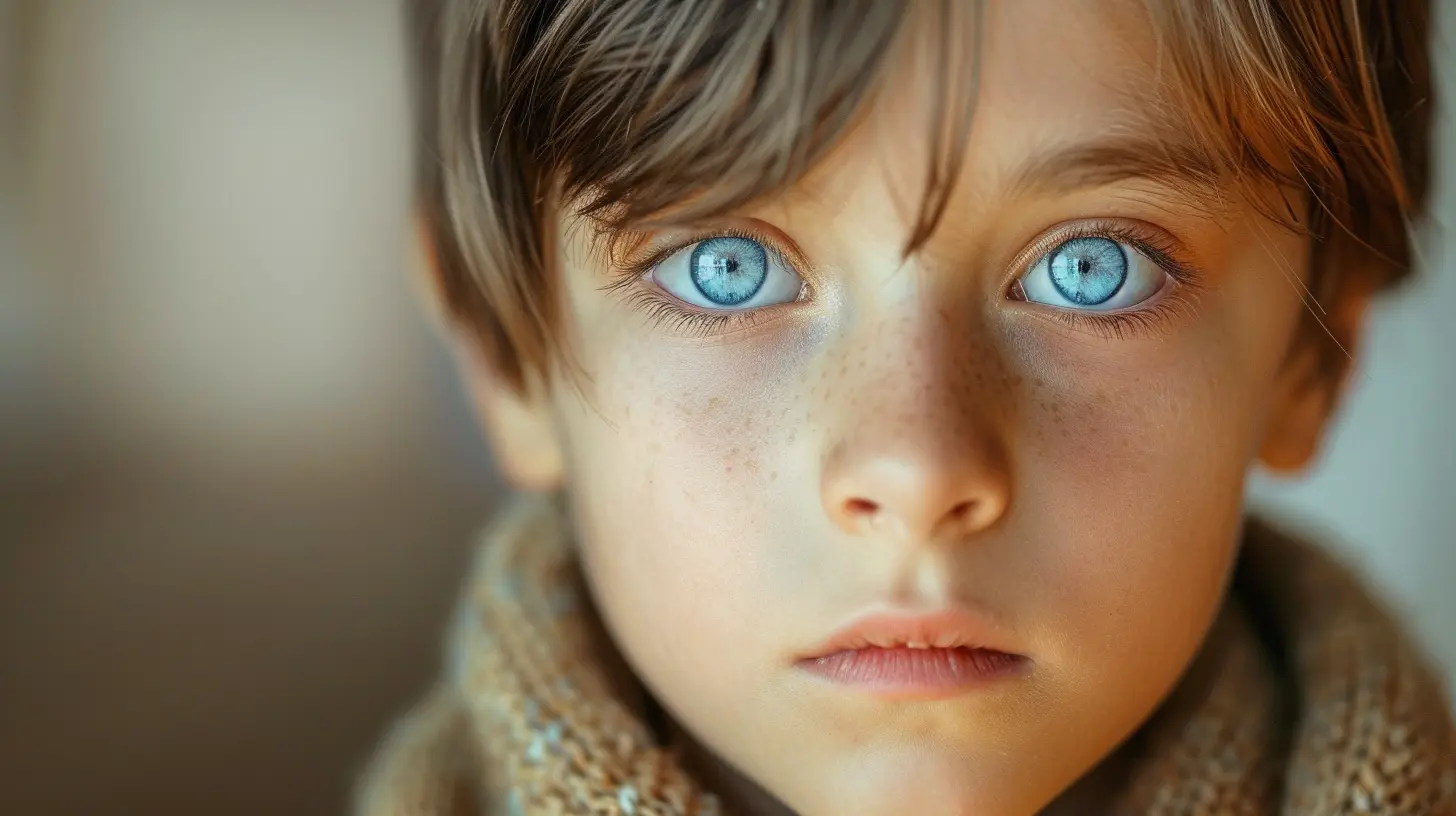Why Emotional Health is Just as Important as Physical Health for Kids
23 May 2025
As parents, we put a lot of effort into making sure our kids eat well, stay active, and get enough rest. But what about their emotional well-being? Just like physical health, emotional health plays a crucial role in a child's overall development. Yet, it often takes a backseat.
Imagine this: You make sure your child drinks enough water, eats their veggies, and gets plenty of exercise. But if they’re constantly feeling anxious, overwhelmed, or insecure, will they truly thrive? Absolutely not.
A child’s emotional health impacts their ability to form relationships, handle stress, and navigate life’s challenges. If we focus only on their physical well-being while neglecting their emotions, we’re only addressing half the picture. Let’s dig deeper into why emotional health is just as important as physical health for kids and how we, as parents, can nurture it.

Understanding Emotional Health
Emotional health isn't just about feeling happy. It’s about recognizing emotions, managing them in a healthy way, and being able to cope with life’s ups and downs. Children with strong emotional health grow into adults who can handle stress, build strong relationships, and make thoughtful decisions.Just like physical health requires regular exercise and nutrition, emotional health requires attention and care. If we ignore it, the effects can be just as serious as neglecting a child’s physical needs.

The Connection Between Emotional and Physical Health
It’s easy to separate emotional and physical health, but in reality, they’re deeply connected. Think about it—when you’re stressed, don’t you sometimes feel sick to your stomach? Or when you're anxious, don’t your muscles tense up? Kids experience this too.When children struggle with emotional issues like anxiety or depression, it often shows up physically—headaches, stomachaches, trouble sleeping, or even weakened immune systems. On the flip side, kids who are physically active and eat well tend to have better emotional regulation. Both aspects of health feed into each other, making it essential to nurture both equally.

Signs Your Child Might Be Struggling Emotionally
Kids don't always tell us when something's wrong—sometimes, they don’t even know how to put their feelings into words. But there are signs to watch for, such as:- Frequent mood swings – If your child seems unusually irritable, sad, or anxious for extended periods, it may indicate emotional distress.
- Loss of interest in activities – When kids suddenly stop enjoying hobbies or social interactions they once loved, it’s worth paying attention to.
- Physical symptoms with no medical cause – Regular headaches, stomachaches, or fatigue often stem from emotional stress.
- Difficulty handling emotions – If your child frequently has angry outbursts, excessive crying, or shuts down emotionally, they might need support.
- Withdrawal from family and friends – Avoiding loved ones or refusing to talk about their feelings can be a sign of emotional struggles.
Recognizing these signs early gives us a better chance of helping our children before things escalate.

The Impact of Poor Emotional Health on Kids
When emotional health is ignored, it can impact kids in more ways than we realize. Poor emotional health can lead to:- Low self-esteem – A child who constantly feels insecure or unworthy may struggle with confidence well into adulthood.
- Behavioral issues – Unaddressed emotions often manifest as outbursts, defiance, or trouble in school.
- Problems forming relationships – Struggles with emotional regulation make it hard for kids to connect with others, leading to loneliness or social difficulties.
- Increased risk of mental health disorders – Anxiety and depression don’t just appear overnight; they often stem from prolonged emotional struggles.
- Poor decision-making skills – Kids who don’t learn how to process emotions in a healthy way may develop unhealthy coping mechanisms, like avoidance or aggression.
This is why it’s so essential to give emotional health the same attention as physical well-being.
How Parents Can Support Their Child’s Emotional Health
So, what can we do as parents to ensure our kids grow up emotionally strong? Here are some practical ways to support their emotional well-being:1. Encourage Open Communication
Let your child know they can always talk to you—about anything. Create a safe space where they feel heard and validated. Instead of dismissing their feelings with "You're overreacting," try saying, "I see you're upset. Do you want to talk about it?"2. Teach Emotional Expression
Many kids struggle with expressing emotions because they don’t know how. Help them name their feelings by saying things like, "It looks like you're feeling frustrated. Want to tell me what's bothering you?" This helps them understand that emotions are normal and manageable.3. Model Healthy Emotional Habits
Kids learn by watching us. If they see us handling stress in a healthy way—talking about our feelings, taking deep breaths, or finding positive outlets—they’ll follow suit.4. Encourage Problem-Solving
Instead of fixing every problem for them, guide them toward solutions. If they’re upset about a conflict with a friend, ask, "What do you think we can do to solve this?" Teaching them how to navigate emotions equips them for life’s challenges.5. Prioritize Play and Relaxation
Just like kids need physical exercise, they also need downtime. Whether it’s drawing, playing outside, or simply unwinding, relaxation is crucial for emotional well-being.6. Cultivate Gratitude and Positivity
Encourage your child to focus on the good. A simple practice like sharing three things they’re grateful for each night can help develop a more positive outlook.7. Seek Professional Help When Needed
If you notice persistent emotional struggles, don’t hesitate to seek professional guidance. Therapists and counselors can provide essential tools that help kids navigate their emotions in a healthy way.
Balancing Emotional and Physical Health
Think of emotional and physical health as two sides of the same coin—you can’t prioritize one while ignoring the other. Ensuring your child eats well, exercises, and gets enough sleep is vital, but so is making sure they feel heard, supported, and emotionally secure.A child who is physically fit but emotionally struggling won’t reach their full potential. Likewise, a child who is emotionally strong but physically unhealthy may face unnecessary challenges. Striking a balance between both aspects creates a foundation for a well-rounded, happy life.
Final Thoughts
Children don’t just need strong bodies; they need strong hearts and minds too. By making emotional health just as much a priority as physical health, we set them up for success—not just in childhood but throughout their entire lives.So, next time you ask your child if they’ve eaten their veggies or brushed their teeth, also ask, "How are you feeling today?" Because in the end, a truly healthy child is one who thrives both physically and emotionally.
all images in this post were generated using AI tools
Category:
Childrens HealthAuthor:

Tara Henson
Discussion
rate this article
3 comments
Amira McKeever
Emotional health lays the foundation for a child’s overall well-being. Just as we prioritize physical fitness, nurturing emotional resilience fosters healthier relationships and coping skills. By supporting our children's emotional needs, we equip them to face life's challenges with confidence and balance.
June 9, 2025 at 3:34 PM

Tara Henson
Absolutely! Prioritizing emotional health is crucial for children's development, enabling them to build resilience and strong relationships while navigating life's challenges. Thank you for highlighting its importance!
Finley Young
Who knew feelings mattered?
May 26, 2025 at 4:55 AM

Tara Henson
Absolutely! Emotions play a crucial role in overall well-being and development, just like physical health.
Flint Estes
Absolutely! Just like we teach kids to eat their veggies for strong bodies, nurturing their feelings helps build resilient hearts. A happy kid is a healthy kid—let’s sprinkle a little joy into our parenting recipes! 🌈❤️
May 23, 2025 at 2:49 PM

Tara Henson
Absolutely! Prioritizing emotional health is essential for holistic development—just like veggies fuel the body, nurturing feelings fosters resilience and joy in our kids. 🌟



